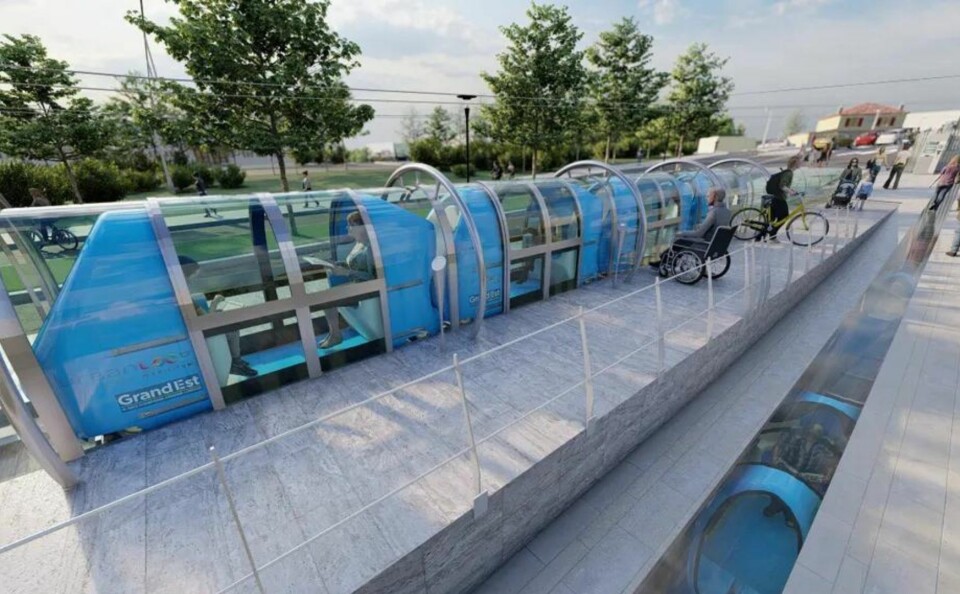-
Faulty airbags: Mass recall in France includes more Toyota and Mercedes models
More than 2 million vehicles are still affected, with more cars now added to the list
-
Olympic ‘horse’ Zeus to begin a tour of France - here is where it will go
The ‘floating’ metallic horse became one of the stars of the show, and is now set to gallop to new pastures
-
Why employees in France are likely to receive less money in January
Three changes are expected to make a dent in the usual level of net pay
Record-breaking electric ‘pod’ railway set for trial at Paris Olympics
The two-person capsules will transport passengers between the velodrome and BMX track

An ultra-light urban railway with small electric-powered ‘pods’ for one or two people following a system of interlocking loops around town is to be trialled at the Paris Olympics.
Passenger licence needed
The Urbanloop, designed by engineers at Lorraine INP engineering university, will run on a 2.2km circuit using 10 pods to link the velodrome with the BMX cycle track.
Before then, the system, which already has a test track near the city of Nancy, must be licensed to transport passengers, which the team behind it hopes will happen next year.
World record set
In the meantime, tests are continuing, including one held in late May to set a world record – a pod travelled one kilometre in one minute, using just one cent’s-worth of electricity.
Around 100 students and qualified engineers have been working on the project.
Prototypes have small capsules designed for one or two people, or one person and a bicycle.
Choose destination like a lift
They are built on a chassis attached to two bogies, one in the front and the other in the back, which have horizontal wheels that click into a groove in the rails to take curves, while rubber wheels provide comfortable suspension.
The pods arrive at siding stations built on the loop, and passengers choose their destination by pushing buttons in the same way as selecting a floor in a lift.
AI choose quickest route
Sophisticated software using artificial intelligence then gives a signal for the pod to leave the station and join the main loop, ensuring safe spacing between capsules and determining the quickest way to reach the destination at a top speed of 60km/h.
Read more: Driverless cars inspire French AI expert to build tool for blind
Lighter alternative to trams
The system evolved from a project for urban mobility in the Grand Est region, where there are 5.6 million people and five large conurbations, ranging from Strasbourg with a population of 487,299 to Metz with 322,264.
None of these urban centres is dense enough to make a conventional underground train system cost-effective and the soil makes it difficult to build classic tramways without putting in extensive foundations.
The company explains: “To adapt to these constraints, the Urbanloop solution is to make the vehicles much lighter, at around 200kg per capsule, compared to 50 tonnes for a tram.
“The rail infrastructure is light and compact, needing only 1.2m, and carries its own weight, so there is no need for foundations.
“And it can be put into cuttings, tunnels or run on viaducts where there is no other space for it in the city.”
If the 2024 Olympic trial is a success, the Urbanloop team hopes the system will receive funding for a full public service, probably in the city of Nancy because of its high student population.
Related articles
Paris 2024 Olympic Games: How to get tickets and what they will cost
Change Olympic opening plans, warns Paris football final investigator
New Olympic Intelligence Centre will coordinate security at Paris 2024
























